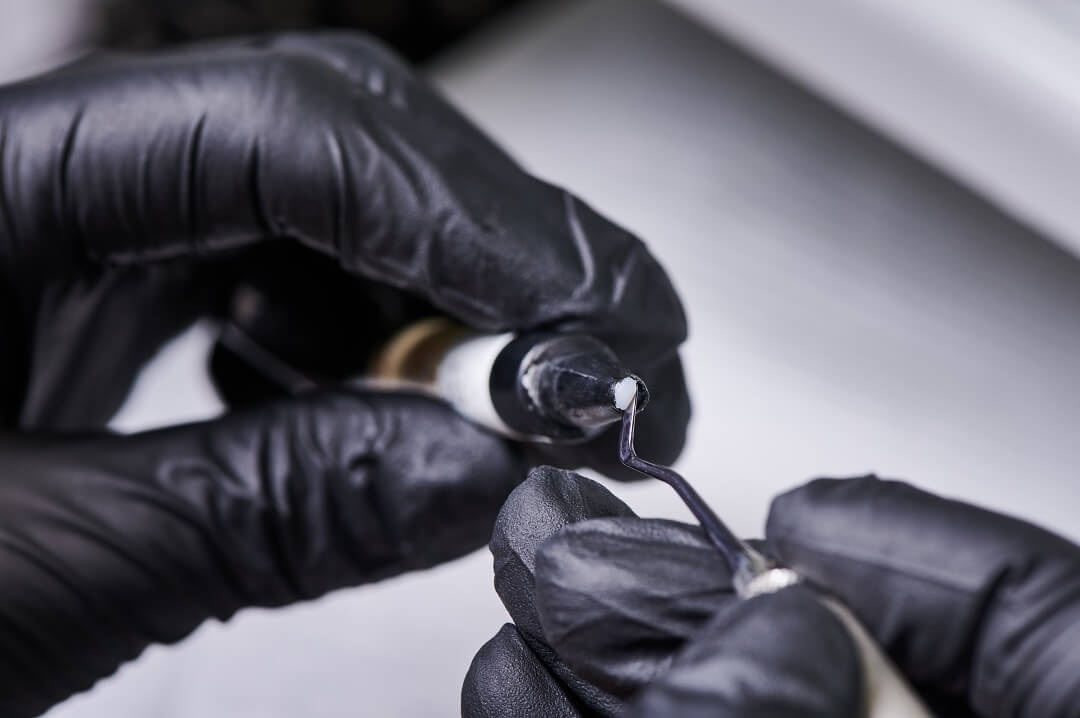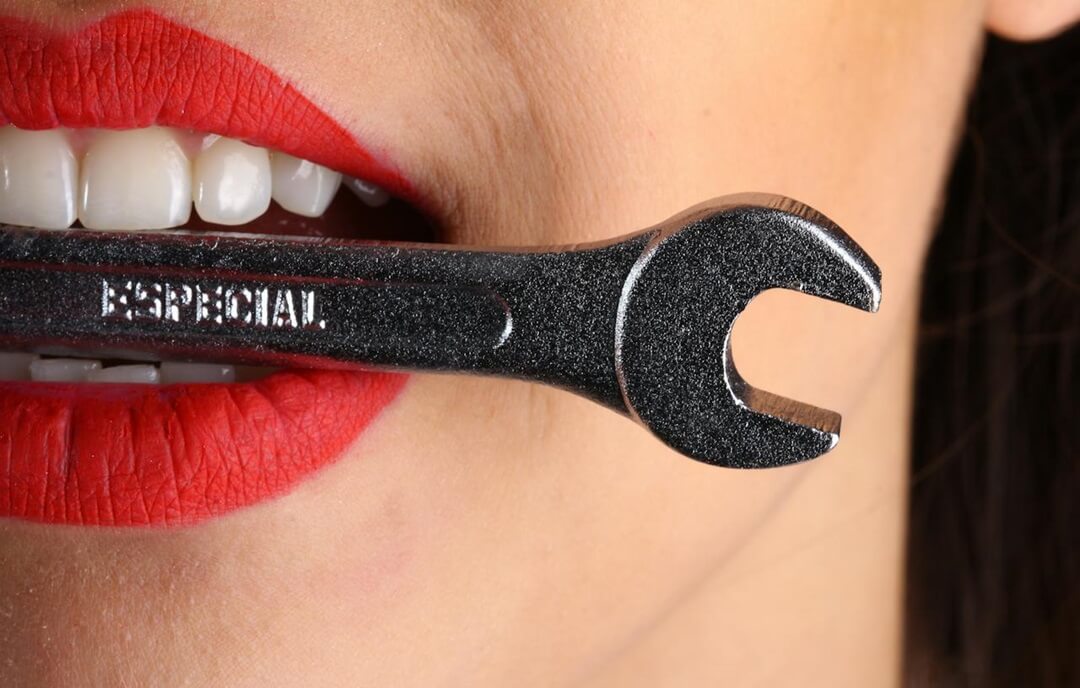Dental bonding is an incredibly versatile and effective solution for many dental issues, offering cosmetic benefits and considerable strength and durability. This simple yet innovative procedure, involving the application of a tooth-colored composite resin to repair and improve the appearance of teeth, has become a cornerstone in modern dental care. But how strong is this solution?
In this article, you will learn about the factors that determine the strength of dental bonding, how it compares to other dental procedures, and what you can do to ensure its longevity. We’ll talk about the quality of materials used and the dental techniques, all influencing the strength and effectiveness of dental bonding.
Imagine being confident in your smile, not just for its appearance but also for its durability. We understand the significance of a strong, healthy smile, and through this article, we aim to guide you toward achieving and maintaining it.
Key Takeaways
- Dental bonding is a versatile choice for fixing smiles. It’s great for small repairs and making teeth look better, but isn’t as hard as your real teeth.
- The strength of dental bonding depends on a few things. The type of materials used, how the tooth is prepared, and the dentist’s skills all play a big part.
- Taking care of your bonded teeth is super important. Brushing, flossing, and not biting hard stuff help keep the bonding strong.
- Dental bonding is a bit different from other options like veneers or crowns. It’s less expensive and doesn’t need as much tooth shaping, but veneers and crowns might last longer and be tougher.
- It’s all about what you need and prefer. Dental bonding is a cool option for quick fixes, but veneers or crowns might be the way to go if you need something stronger or longer-lasting.
How Strong is Dental Bonding?
When it comes to dental procedures, the strength and durability of the treatment are often just as important as the aesthetic outcome. This is especially true for dental bonding, a popular procedure used for everything from repairing chipped teeth to improving the overall appearance of your smile.
Strength, in the context of dental bonding, refers to the ability of the bonded material to withstand everyday oral functions like biting and chewing without breaking or wearing down. So, how does dental bonding measure up in terms of strength?
Durability Compared to Natural Teeth
First and foremost, it’s important to understand that while dental bonding is strong, it’s not quite as hard as natural teeth. The composite resin used in bonding is durable and can last several years, but it is slightly softer than natural tooth enamel. This means that while it can handle most of your daily dental demands, it might not be the best choice for areas in your mouth that experience high biting pressure.
Strength in Everyday Use
Bonded teeth perform well in everyday activities, such as eating and speaking. The resin material can handle various textures and pressures, making it a suitable option for repairing chipped or cracked teeth, closing gaps, and improving the appearance of discolored teeth. However, avoiding biting into extremely hard foods like ice or hard candies is smart, as these can potentially damage the bonding.
Comparison to Other Dental Procedures
Dental bonding holds up well compared to other dental procedures like veneers or crowns, particularly considering its less invasive nature. It doesn’t require the same tooth alteration level, making it a more conservative option. However, in terms of sheer strength and durability, veneers and crowns, especially those made from materials like porcelain, tend to be more robust and longer-lasting.

Factors Influencing Bonding Strength
The effectiveness of dental bonding is not just a result of the procedure itself but also a culmination of various factors that play a critical role in determining the strength and durability of the bond.
1. Quality of Bonding Materials
The materials used in dental bonding significantly impact the overall strength and durability of the treatment. Dental bonding uses composite resins and adhesives, whose quality can vary. Higher-quality materials tend to provide a bond more resistant to wear and tear, offering greater longevity. The composition of these materials is designed to mimic the natural strength and appearance of tooth enamel, but their performance depends heavily on the manufacturing standards and chemical formulation.
2. Tooth Surface Preparation
How a tooth is prepared before bonding is crucial for the procedure’s success. Effective bonding requires a clean and slightly roughened tooth surface. Dentists typically achieve this through a process called etching, where a mild acid is applied to the tooth to create a rough surface that enhances the adhesion of the bonding material. Proper etching can significantly increase the bond strength, ensuring the resin adheres well and lasts longer.
3. Dentist’s Bonding Technique
The dentist’s skill and technique are pivotal in determining the strength of the bond. Precision in applying the bonding material is essential. The dentist must layer the resin accurately and cure it with the right light intensity for the appropriate duration. Any deviations in these steps can lead to a weaker bond. The dentist’s experience and attention to detail play a significant role in this process.
4. Condition of the Tooth
The health and condition of the tooth being treated are fundamental in influencing the bonding’s success. A tooth that is free from decay and has a strong structure provides a better foundation for bonding. If a tooth is heavily filled or has undergone significant structural changes, it may not hold the bonding material as effectively, leading to a weaker bond.
5. Moisture Control
Managing moisture is a critical aspect of the bonding process. The presence of saliva or blood can interfere with the bonding agent’s ability to adhere properly to the tooth. Dentists use various techniques, such as cotton rolls and suction, to keep the area dry during the procedure.
6. Patient’s Oral Hygiene
The patient’s care of their bonded teeth post-treatment significantly affects the bond’s longevity. Good oral hygiene practices are essential, including regular brushing, flossing, and avoiding habits that could damage the bond (like biting hard objects). Neglecting oral hygiene can lead to the weakening of the bond over time.
7. Type of Bonding Agent
The choice of bonding agent is a vital factor in the bonding process. Different agents, such as total-etch or self-etch, have their specific properties and strengths. The choice depends on various factors, including the tooth’s condition and the specific requirements of the bonding procedure.
8. Occlusal Stress
The stress exerted on the bonded tooth during normal functions affects its durability. The amount of force a bonded tooth is subjected to, especially in high-stress areas like the molars, can impact the longevity of the bond. Patients with habits like grinding their teeth may see quicker degradation of the bonding.
9. Age of the Bond
Over time, the bond can weaken due to natural wear and tear. The bond’s strength diminishes gradually over the years. Regular check-ups can help identify any weakening early, and maintenance procedures can be performed to prolong the bond’s life.
10. Eating and Lifestyle Habits
Lifestyle choices can significantly affect the health and appearance of bonded teeth. Habits such as smoking, drinking staining beverages, and eating hard or sticky foods can compromise the integrity of the bond and discolor the resin.
Understanding these factors can help patients and dentists make informed decisions and take appropriate actions to ensure the success and longevity of dental bonding treatments.
Comparing Dental Bonding with Other Dental Procedures
While dental bonding is a popular choice for many dental issues, understanding how it compares to other procedures like veneers and crowns can help patients make informed decisions. This section provides a comparative analysis focusing on the strength and durability of these treatments.
Dental Bonding vs. Veneers
Dental bonding and veneers are both cosmetic treatments used to improve the appearance of teeth, but they differ significantly in terms of application, durability, and strength.
Dental Bonding: Bonding involves applying a composite resin directly onto the tooth, which is then shaped and hardened. It’s a less invasive and more cost-effective option than veneers. However, while dental bonding is strong and can last several years, it generally doesn’t offer the same longevity or resistance to staining as veneers.
Veneers: Veneers are thin shells of porcelain or composite material that are custom-made and then bonded to the front surface of the teeth. They are more durable and resistant to staining than dental bonding and can last for 10 to 15 years or more with proper care. However, veneers require the removal of a small amount of tooth enamel and are a more expensive option.
Dental Bonding vs. Crowns
Dental bonding and crowns serve different purposes but can sometimes be considered alternative treatments. Their strength and durability vary based on the materials used and the extent of coverage they provide to the tooth.
Dental Bonding: Suitable for minor cosmetic changes and to fix small chips or cracks, dental bonding is less invasive and preserves more of the natural tooth. It’s a good option for temporary or less severe restorations. The strength of dental bonding is adequate for everyday use but may not be as resilient as a crown in the long run.
Crowns: Dental crowns cover the entire tooth and are used for significant restorations. They can be made of porcelain, ceramic, metal, or a combination of these materials. Crowns are stronger and more durable than bonding, capable of withstanding significant biting forces, and are ideal for restoring teeth that have undergone extensive damage or decay. The process of getting a crown is more invasive and typically more costly than bonding.
In summary, while dental bonding offers a strong and cost-effective solution for minor cosmetic and structural issues, veneers and crowns provide more durable options for extensive dental restorations. The choice between these treatments depends on the patient’s specific dental needs, budget, and desired outcome.
A Brighter Smile Awaits
Dental bonding is a fantastic option for those looking to enhance their smile with a simple, effective, and cost-efficient treatment. It’s ideal for minor repairs and cosmetic improvements, offering a balance of strength and aesthetics. While it may not be as hardy as natural teeth or as long-lasting as veneers or crowns, dental bonding is a reliable solution for various dental needs.
Remember, the key to successful dental bonding lies in good oral hygiene, the right choice of materials, and skilled dental work. If you’re considering this treatment, a chat with your dentist can help you make an informed decision. So, here’s to a brighter, more confident smile with dental bonding – a small step that can make a big difference in your everyday life.
Ready to Transform Your Smile with Dental Bonding?
Are you considering dental bonding for a brighter, more confident smile? At Soundview Family Dental, we’re here to help you achieve just that. Our expert team is dedicated to providing top-notch dental bonding services tailored to your unique needs. Whether it’s repairing a chip, closing a gap, or simply enhancing your smile’s appearance, we’ve got you covered.
Don’t wait to take the first step towards a more beautiful smile. Contact us today at (425) 563-6360 to schedule your appointment and discover the difference dental bonding can make!


